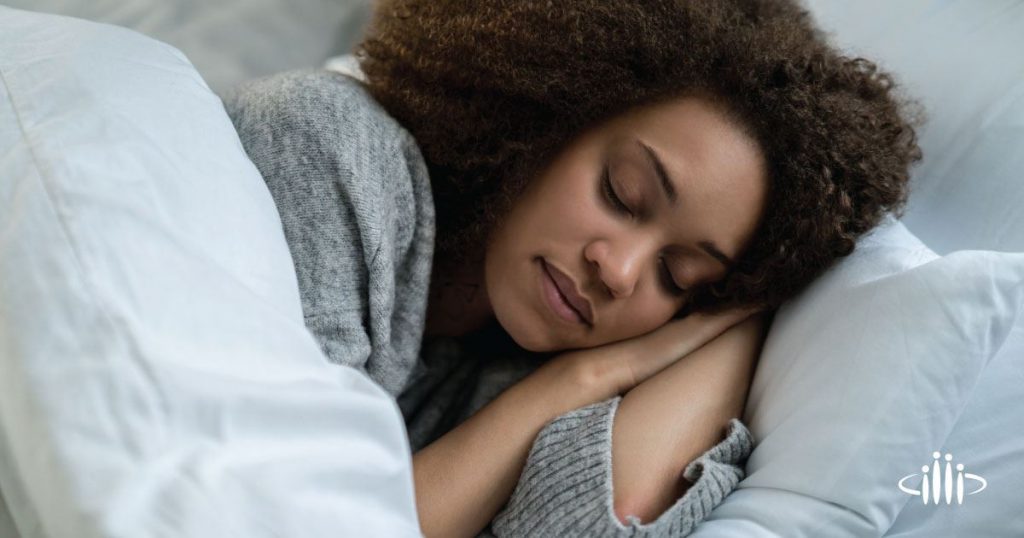
An Eye Opening Look at Sleep
The price of a bad night’s sleep is more than an expensive cappuccino.
For some, lack of sleep is a badge of honor, but in truth, being tired is far from something to celebrate. Chronic lack of sleep is associated with a host of health problems, including obesity, diabetes, depression, cardiovascular disease, substance abuse, and physical inactivity.
Lack of sleep decreases attentiveness and reaction time and is linked to increased risk of motor vehicle accidents. Compared with normal sleepers, the sleep-deprived have more work absences and fatigue, and inattention can put workers at higher risk for on-the-job injuries.
We’re talking big numbers: Many Americans aren’t getting enough sleep, with about 35 percent of U.S. adults reporting less than seven hours of shut-eye a night, according to a U.S. Centers for Disease Control and Prevention study released in 2016. Costs are too high, too, with annual direct, indirect, and related costs of sleep disorders estimated at $107 billion.
How much sleep is needed?
What’s the optimal amount to leave a person feeling fully rested? Individual sleep needs vary, but the National Sleep Foundation offers these daily guidelines:
- Adults: 7 to 9 hours
- Teenagers: 8.5 to 9.5 hours
- Children (5 to 12 years): 9 to 11 hours
Minor changes can help you establish consistent sleep and wake schedules, like avoiding caffeine or alcohol before retiring or creating a more sleep-conducive environment, like keeping all electronics out of the bedroom. But major sleep problems like chronic insomnia or obstructive sleep apnea usually require medical intervention.
The sleep connection
If you have high blood pressure, examine your sleep habits. In a four-year study of older adults with hypertension (the average age was 70) published in Archives of Internal Medicine, too little sleep was linked to risk of heart disease. The group of adults that slept fewer than seven and a half hours nightly had a 68% higher risk of heart attack, stroke, or sudden cardiac death compared with the group that slept longer.
Getting a handle on your sleep problems may be a way to tackle the obesity issue as well. There’s ample scientific evidence of a link between the two, although why this link exists has yet to be explained. A CDC study in 2018 revealed that people who sleep less than six hours a night were shown to be more likely to be obese, have higher smoking and alcohol rates, and are less likely to engage in physical activity than those receiving seven to nine hours of sleep. People who sleep more than nine hours are also more likely to be obese.
According to another study that year examined the research literature on the link between sleep and obesity, researchers found a consistent pattern of increased odds of being a short sleeper if you are obese, both in childhood and adulthood.
Obesity was seen amongst 33% of those who got less than six hours of sleep and 26% of those who slept longer than nine hours. Obesity was a concern for only 22% of those who received seven to eight hours of sleep.
In a study of children published in Pediatrics, researchers found that 23% of sixth-graders averaging less than eight and a half hours of sleep per night were obese, while sixth-graders averaging more than nine and a quarter hours a night had an obesity rate of 12%.
While eating healthy and exercising regularly are important precautions to take to reduce one’s chances of being overweight, getting enough sleep is equally as important. In addition, a lack of sleep can lead to increased stress, relationship and work issues, and put one’s general physical health at increased risk.
Feel Refreshed!
A better night’s sleep can mean a happier, healthier you. It’s best to talk to a sleep expert about your sleepless nights because they could be due to a medical condition, such as anemia, an underactive thyroid, heart disease, hormone imbalance, sleep apnea, depression, hepatitis, or something else.
These are just a few of the many reasons you should visit the Sleep Institute if you suspect that you or a loved one might have a sleep disorder. Their high-tech sleep studies help us determine the precise nature of your sleep-related problem. Then, they create a treatment plan personalized to your condition.
Two convenient locations:
Health & Wellness Sleep Institute
1553 E. Center St.
Pocatello, ID 83201
P: (208) 233-9355
Bingham Memorial Sleep Lab
53 Poplar St.
Blackfoot, ID 83221
P: (208) 782-2889
Our content is reviewed regularly and is updated when new and relevant evidence is made available. This information is neither intended nor implied to be a substitute for professional medical advice. Always seek the advice of your physician or other qualified health provider prior to starting any new treatment or with questions regarding a medical condition.



